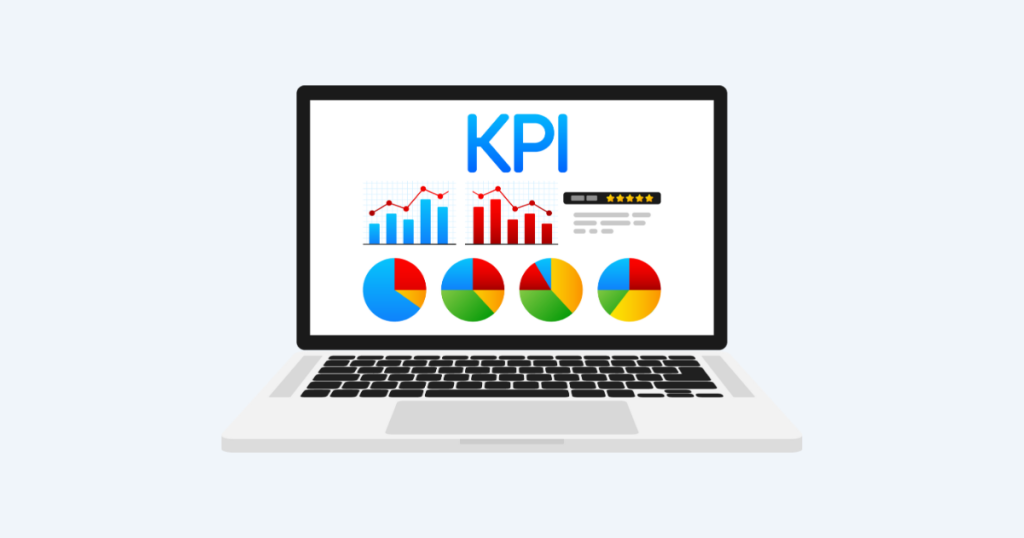Affiliate Marketing KPIs (Key Performance Indicators) are specific metrics used to evaluate how well your affiliate marketing campaigns are doing. These indicators help you understand your campaign’s performance, spot areas for improvement, and make data-driven decisions to enhance your marketing efforts. KPIs give you a clear picture of whether your campaigns are meeting your goals.
Affiliate Marketing KPIs Important?
Tracking Affiliate Marketing KPIs is crucial for several reasons:
- Measuring Success: KPIs provide a quantitative measure of your affiliate marketing campaign’s success. They help you determine if your campaigns are meeting their objectives and generating the desired outcomes.
- Optimizing Campaigns: By analyzing KPIs, you can see which parts of your campaigns are doing well and which need improvement. This allows you to make data-driven adjustments for better results.
- Allocating Resources: Understanding your KPIs helps you allocate resources more effectively. Knowing which campaigns and strategies yield the best results allows you to focus your time, effort, and budget on the most profitable areas.
- Building Relationships: KPIs also help build stronger relationships with your affiliates. By sharing performance data with your affiliates, you can collaboratively identify opportunities for improvement and motivate them to achieve better results.
Affiliate Marketing KPIs to Track
To measure your affiliate marketing campaigns’ performance, track these important KPIs:
- Click-Through Rate (CTR): CTR measures the percentage of people who click on your affiliate links out of the total number of people who see them. It indicates how compelling your affiliate links and promotional content are. Formula: CTR=(Total ClicksTotal Impressions)×100\text{CTR} = \left( \frac{\text{Total Clicks}}{\text{Total Impressions}} \right) \times 100
- Conversion Rate (CR): CR measures the percentage of people who complete a desired action (like making a purchase) after clicking on your affiliate link. It shows how effective your affiliate marketing is at driving actual sales or conversions. Formula: CR=(Total ConversionsTotal Clicks)×100\text{CR} = \left( \frac{\text{Total Conversions}}{\text{Total Clicks}} \right) \times 100
- Revenue: Revenue is the total amount of money earned from your affiliate marketing efforts. This KPI is crucial for understanding the overall financial performance of your campaigns.
- Average Order Value (AOV): Average Order Value (AOV) measures the average amount of money customers spend per order. It helps you understand the spending behavior of customers who purchase through your affiliate links. Formula: AOV=Total RevenueTotal Orders\text{AOV} = \frac{\text{Total Revenue}}{\text{Total Orders}}
- Cost Per Acquisition (CPA): CPA measures the cost incurred to acquire a single customer or conversion through your affiliate marketing efforts. It is an important KPI for understanding the efficiency and profitability of your campaigns. Formula: CPA=Total CostsTotal Conversions\text{CPA} = \frac{\text{Total Costs}}{\text{Total Conversions}}
- Return on Investment (ROI): ROI measures the profitability of your affiliate marketing campaigns by comparing the revenue generated to the costs incurred. A higher ROI indicates more profitable campaigns. Formula: ROI=(Total Revenue−Total CostsTotal Costs)×100\text{ROI} = \left( \frac{\text{Total Revenue} – \text{Total Costs}}{\text{Total Costs}} \right) \times 100
- Earnings Per Click (EPC): EPC measures the average earnings generated from each click on your affiliate links. It helps you understand the monetary value of each click. Formula: EPC=Total RevenueTotal Clicks\text{EPC} = \frac{\text{Total Revenue}}{\text{Total Clicks}}
- Traffic Sources: Understanding the sources of your traffic is crucial for optimizing your campaigns. Tracking traffic sources helps you identify which channels drive the most traffic and conversions.
- Customer Lifetime Value (CLV): CLV measures the total money a customer spends with your business over their entire relationship with you. It helps you understand the long-term value of customers acquired through affiliate marketing. Formula: CLV=Average Purchase Value×Average Purchase Frequency×Customer Lifespan\text{CLV} = \text{Average Purchase Value} \times \text{Average Purchase Frequency} \times \text{Customer Lifespan}
- Affiliate Performance: Tracking the performance of individual affiliates is crucial for understanding who your top performers are. Metrics such as revenue generated, number of conversions, and traffic driven by each affiliate can provide valuable insights.
How to Track Affiliate Marketing KPIs
Here are some effective methods for tracking your KPIs:

- Use Affiliate Tracking Software: Affiliate tracking software monitors and reports on your affiliate marketing campaigns’ performance. These tools provide detailed reports on clicks, conversions, revenue, and other key metrics. Some popular affiliate tracking software includes Post Affiliate Pro, Voluum, Refersion, and Tapfiliate.
- Google Analytics: Google Analytics is a powerful tool for tracking website traffic, user behavior, and conversions. By setting up goals and tracking events, you can monitor the performance of your affiliate marketing campaigns and gather valuable insights.
- UTM Parameters: Using UTM parameters in your affiliate links helps you track the source, medium, and campaign associated with each click. This data can be analyzed in Google Analytics to understand the performance of different traffic sources.
- CRM Systems: Customer Relationship Management (CRM) systems like Salesforce, HubSpot, and Zoho CRM help you track customer interactions, sales, and revenue. Integrating your affiliate marketing data with your CRM can provide a comprehensive view of your campaign’s performance.
- Manual Tracking: For smaller affiliate programs, manual tracking using spreadsheets can be an effective method. While this approach can be time-consuming, it allows for detailed tracking of individual affiliates and campaigns.
- Regular Reporting: Generating regular reports on your KPIs helps you stay updated on your affiliate marketing campaigns’ performance. Weekly, monthly, or quarterly reports can provide valuable insights and help you make informed decisions.
Maximizing Your Affiliate Marketing KPIs
By understanding and tracking these KPIs, you can make data-driven decisions, optimize your campaigns, and achieve better results. Here are some tips for maximizing your Affiliate Marketing KPIs:
- Set Clear Goals: Define what success looks like for your campaigns.
- Focus on High-Impact KPIs: Concentrate on the metrics that matter most to your business.
- Analyze Data Regularly: Regular analysis helps you spot trends and make timely adjustments.
- Optimize Affiliate Partnerships: Work closely with your affiliates to improve performance.
- Test and Experiment: Try different strategies to see what works best.
- Provide Feedback to Affiliates: Share performance data to motivate and guide your affiliates.
- Improve Marketing Materials: Enhance the content and visuals of your affiliate links.
- Monitor Traffic Quality: Ensure the traffic driven by your affiliates is of high quality.
- Optimize Landing Pages: Make sure your landing pages are effective in converting visitors.
- Utilize Data Insights: Leverage insights from your data to make informed decisions.
While tracking Affiliate Marketing KPIs can be challenging, overcoming these challenges ensures that your campaigns are successful and profitable. With dedication, persistence, and a strategic approach, you can build a successful and sustainable affiliate marketing program that delivers significant returns on investment.



